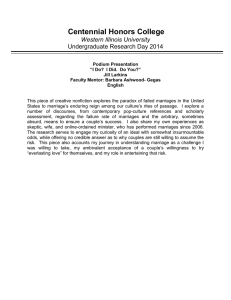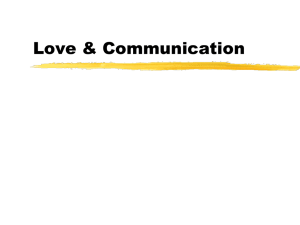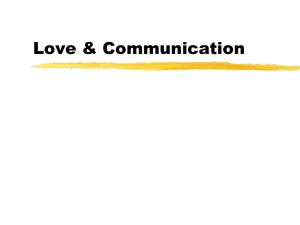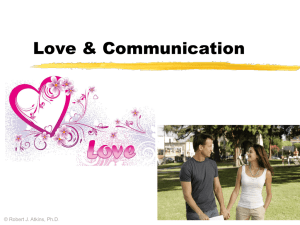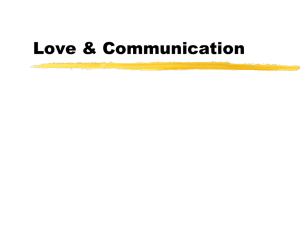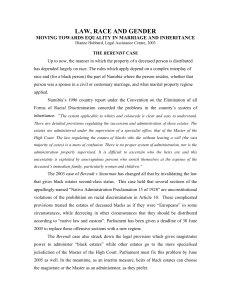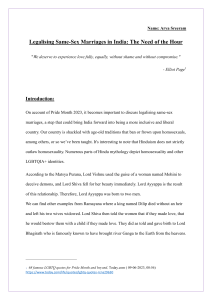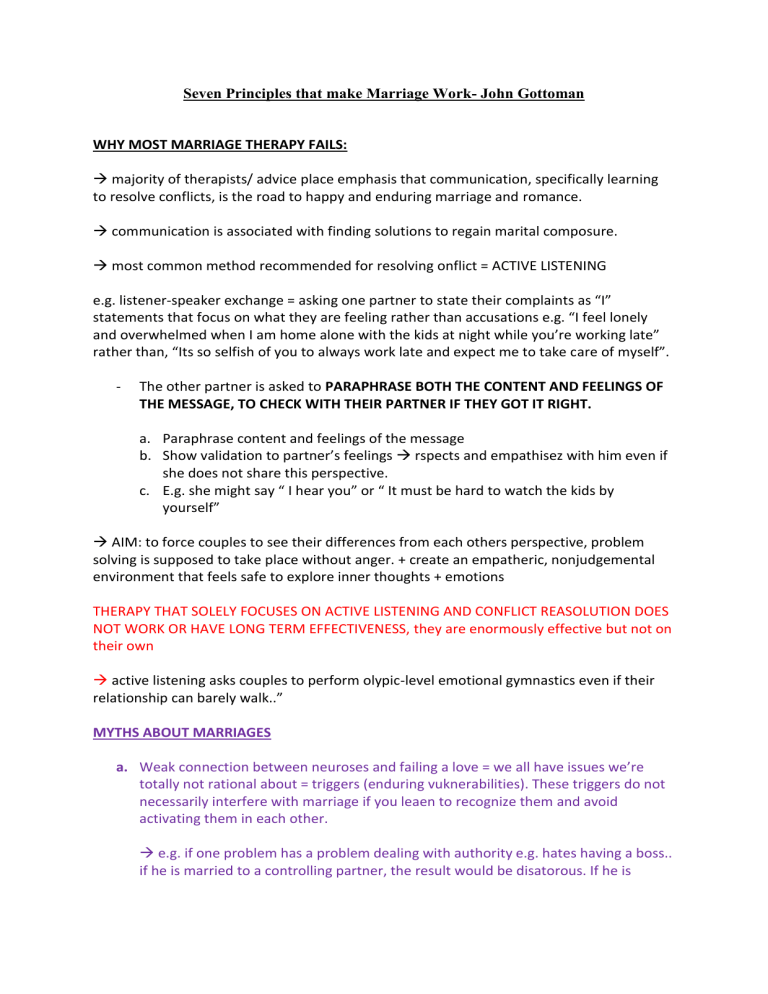
Seven Principles that make Marriage Work- John Gottoman WHY MOST MARRIAGE THERAPY FAILS: majority of therapists/ advice place emphasis that communication, specifically learning to resolve conflicts, is the road to happy and enduring marriage and romance. communication is associated with finding solutions to regain marital composure. most common method recommended for resolving onflict = ACTIVE LISTENING e.g. listener-speaker exchange = asking one partner to state their complaints as “I” statements that focus on what they are feeling rather than accusations e.g. “I feel lonely and overwhelmed when I am home alone with the kids at night while you’re working late” rather than, “Its so selfish of you to always work late and expect me to take care of myself”. - The other partner is asked to PARAPHRASE BOTH THE CONTENT AND FEELINGS OF THE MESSAGE, TO CHECK WITH THEIR PARTNER IF THEY GOT IT RIGHT. a. Paraphrase content and feelings of the message b. Show validation to partner’s feelings rspects and empathisez with him even if she does not share this perspective. c. E.g. she might say “ I hear you” or “ It must be hard to watch the kids by yourself” AIM: to force couples to see their differences from each others perspective, problem solving is supposed to take place without anger. + create an empatheric, nonjudgemental environment that feels safe to explore inner thoughts + emotions THERAPY THAT SOLELY FOCUSES ON ACTIVE LISTENING AND CONFLICT REASOLUTION DOES NOT WORK OR HAVE LONG TERM EFFECTIVENESS, they are enormously effective but not on their own active listening asks couples to perform olypic-level emotional gymnastics even if their relationship can barely walk..” MYTHS ABOUT MARRIAGES a. Weak connection between neuroses and failing a love = we all have issues we’re totally not rational about = triggers (enduring vuknerabilities). These triggers do not necessarily interfere with marriage if you leaen to recognize them and avoid activating them in each other. e.g. if one problem has a problem dealing with authority e.g. hates having a boss.. if he is married to a controlling partner, the result would be disatorous. If he is happied to someone that treats him like an equal and does not dominate hi= happy marriage. *NEUROSES DOES NOT HAVE TO RUIN MARRIAGES… IF YOU CAN ACCOMMODATE EACH OTHER’S CRAZY SIDE AND HANDLE IT WITH CARING, AFFECTION AND RESPECT MARRIAGE CAN THRIVE b. COMMON INTERESTS KEEP YOU TOGETHER doing something that the other person likes that is a mututal hobby can enrich and deepen fondness and interst in each other but if it comes with criticism, it is not benefical. c. IN GOOD MARRIAGES, SPOUSES RESPOND IN KIND TO EACH OTHER’S POSITIVE OVERTURES” e.g. when one helps out with a chore, the other intentionally reciperocates. This is likely functioning with an unwritten agreement to offer recompense for each word or deed. Running tally of who has done what for whom is a really a sign of trouble. d. AVOIDING CONFLICT WILL RUIN YOUR MARRIAGE: couples have different styles of conflict, some avoid fights at all costs, some argue a lot, some are able to tak out their differences and find

